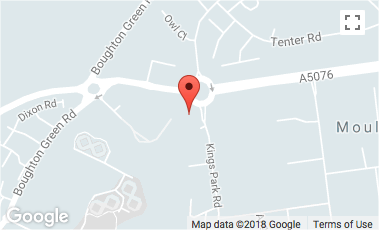Eating out has been on the increase in the UK for a number of years but research from market analyst Horizons, which questioned 1,000 consumers, found a 3% drop in diners during the 2008 festive period, with the number of times people ate out hitting an all-time low at an average of 2.7 times a week.
However, despite this drop in footfall, there was a rise in consumer spend, according to Horizons’ managing director Peter Backman.
“We are seeing a flight to quality with people eating out less but spending more,” he said.
“Spend per head at £12.46 is the highest ever recorded, demonstrating this new ‘save-it for something special’ approach.”
Hardest hit be this trend were coffee shops, pubs and takeaway outlets, while restaurants in the mid and premium sectors were the main beneficiaries.
Backman added that the eating out market was “polarising” and sliding away from coffee bars, sandwich shops and fast food takeaways where spend is less than £5, as well as the value sector where spend is £5-£11.
“A reduction in frequency of eating out is indicative of fewer ad hoc or unplanned meals out. Operators at the other end of the scale – the premium casual and premium restaurant sectors – where spend is above £17, are faring better,” Backman said.
This research shows that restaurateurs need to focus on customer service more than ever if they are to ensure that their restaurant is one that will entice diners rather than their competitors’ establishment.
Customer service is just as important as the food that is served in a restaurant, showing your customer that you value their custom from the moment they enter is crucial. On a busy weekend a restaurants normal pleasant ambiance can be completely changed by large numbers of guests gathering around the front door trying to arrange a table, for the restaurant owner this is a double edged sword, on one hand it is great news that their establishment is so popular there is a waiting list for tables, on the other the congregation of people detract from the usual elegant atmosphere that is one of the reasons the restaurant is popular with diners.
A hand written waiting list is the answer for many establishments, but problems can arise when waiting guests continually return to the hostess station to ask if their table is ready yet or if their name has been called as they didn’t hear clearly what name the hostess was calling. Generally people will wait a short time to see if they are seated quickly, after this they tend to leave frustrated because the restaurant was to busy or irritated because they feel forgotten. This can lead to upset staff members who are constantly badgered by frustrated guests waiting for tables and potential customers lost to the competition and unlikely to ever return.
A restaurant pager system can be the answer to this problem, a guest call pager is handed to the waiting guest when they are checked in at the hostess station, the guests can then relax at the bar, or even sit outside in a garden area with the peace of mind that once their table is ready the hostess will alert them via their pager.
The latest guest paging systems even incorporate table management systems enabling the hostess to inform the waiting guest of the estimated table wait time from information displayed on the base station this ensures that your guest’s expectations are managed effectively at the time the pager is handed to them. If the restaurant already has a table reservation system many of the modern paging systems can be fully integrated in to these systems. New UHF frequency paging systems have a range of up to two miles so guests are not restricted to a confined waiting area, they can take advantage of all of the venues facilities comfortable knowing that they are contactable the moment their table is available.
Research shows that even with extended waiting times of over one hour guests tend to be happy to wait when they have the freedom a guest call pager offers. Waiting guests are alerted by the pager flashing/bleeping and/or vibrating (alert options are selected by the restaurant) when they are required back at the hostess station for seating. Guests feel more valued when offered a pager whilst waiting to be seated, they understand that the restaurant operators value their patronage and attach a high degree of importance to making the dining experience a pleasurable one.
For the restaurant owner walk aways are reduced and happy contented diners will recommend the restaurant to friends and family and are certain to revisit. A guest call restaurant pager system is an essential business tool for the modern busy restaurant.
Contented guests that feel valued will tell their friends and family about their pleasant experience at your restaurant, employees that experience an efficient happy working environment are more productive and stay for longer. Pagers should used to enhance busy restaurants popularity and retain more custom.




